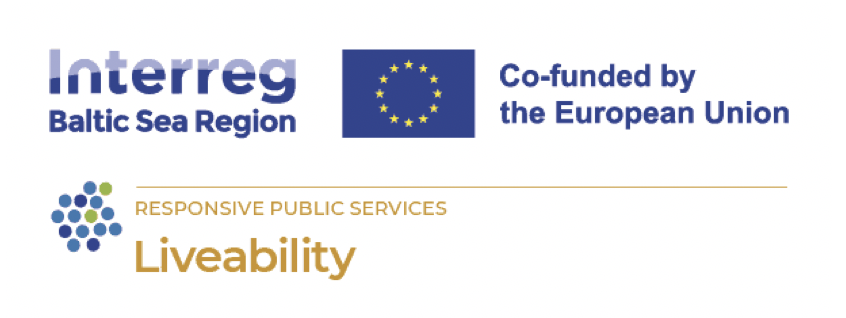
January 2023 – December 2025
“Liveability – Designing Public Services for Resilient Neighbourhoods”
Interreg BSR PROGRAMME 2021-2027
Priority: 1 Innovative Societies
Objective: 1.2 Responsive Public Services
Partners:
Heinrich-Böll-Foundation Schleswig-Holstein e.V.;
City of Kiel;
Danish Cultural Institute;
Business Kolding;
Guldborgsund Municipality;
City of Pori;
Riga City Council;
City of Gdynia;
Gdansk University of Technology; nextlearning e.V.;
Estonian Academy of Arts
Support to EKA: 196,398 euros
Total budget: 2,624,316.18 euros
https://interreg-baltic.eu/project/liveability/
Many small-and medium sized cities in the BSR are facing complex social, environmental and economic challenges, including inequalities, climate change and demographic changes. The COVID-19 pandemic has further aggravated some of these challenges, while also changing work and life patterns and preferences of citizens. This has led to the idea that “post-corona cities” should embrace change, undergo a renewal process and attract residents and enterprises by creating more livable neighborhoods.
To be successful in this transformation process, cities need to follow an integrated and balanced approach for the built environment, innovation culture, public service delivery and socio-cultural life by evoking a strong sense of belonging and active citizenship. The idea for this project stems from an exchange of medium-sized cities on how to act on this challenge. The common perspective was that the roots for the livable city can be found in the neighborhoods, and that local citizens and civil society should be involved in developing and implementing ideas for future urban life and togetherness. Cities must therefore become “closer” to the citizen, “more public” and “more agile”.
This can be achieved by encouraging innovative mindsets, out-of-the-box thinking and the use of participatory approaches among city administration staff. All this is encapsulated in the concept of “public interest design”, i.e. the application of user-centered design principles on matters of general interest. However, only few employees of city administrations are familiar with design principles or know how to apply them. Their application should therefore not be a matter of singular pilot projects, as is currently often the case, but a matter of city-wide roll-out. The cities’ political and administrative leadership must be willing to make design and user involvement a guiding principle and actively facilitate and support learning and innovation processes related to public interest design.
